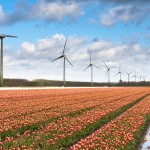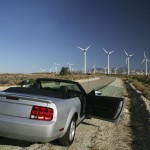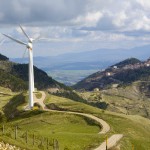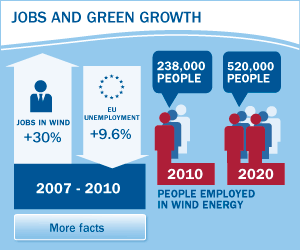
Professor Gordon A. Hughes
The anti-wind energy Renewable Energy Foundation yesterday published an “anonymously peer reviewed” study by wind energy critic Professor Gordon Hughes (author of ‘The myth of green jobs’ and ‘Why wind energy is so expensive’) claiming that the economic life of wind turbines is 10-15 years rather than the 20-25 years stated by the wind industry.
Given that the author and publisher have a history of attacking wind energy and the fact that they do not say who peer-reviewed the study, perhaps one should not take the study too seriously. But that does not stop it being reported in the British media.
But at least some papers showed some scepticism. The Financial Times reported that the UK Department of Energy and Climate Change rejected Prof Hughes’ findings. “Our expectations of wind turbine lifetimes are based on rigorous analysis and evidence,” the department said. “Britain’s oldest commercial turbines at Delabole in Cornwall have only recently been replaced after 20 years of operation, and the technology has come on in leaps and bounds since that project started generating in 1991.”
continue reading »
 A new Danish survey on people living close to wind turbines shows that four out of five people feel there are no downsides to the experience – and 23 % of those surveyed became more positive towards the turbines within one year of installation. In addition, 59% of respondents answered “neither positive nor negative” to the question of whether their attitude changed over one year of living with the turbines in their midst.
A new Danish survey on people living close to wind turbines shows that four out of five people feel there are no downsides to the experience – and 23 % of those surveyed became more positive towards the turbines within one year of installation. In addition, 59% of respondents answered “neither positive nor negative” to the question of whether their attitude changed over one year of living with the turbines in their midst.
The nationwide analysis, carried out by an independent consultancy, was based on interviews with 1,278 people living within a radius of 2 kilometres (1.25 miles) of a wind turbine that was at least 120 metres (394 feet) tall and had been in operation for a year at minimum. This height meant that these were modern turbines, installed between 2002 and 2011. The people lived close to 125 turbines, spread over 30 different wind projects.
continue reading »
 Beyond an anaemic international agreement to extend the Kyoto Protocol to 2020, it is hard to see what positive momentum was achieved at the end of the two-week UN conference on climate change which ended on Saturday in Doha.
Beyond an anaemic international agreement to extend the Kyoto Protocol to 2020, it is hard to see what positive momentum was achieved at the end of the two-week UN conference on climate change which ended on Saturday in Doha.
While almost 195 nations did endorse the proposal to extend Kyoto past 2012, no new targets for reducing toxic global greenhouse gas emissions from burning fossil fuels and no binding plan to keep global temperature rise to no more than 2 degrees Celsius were announced.
Even the Executive Secretary of the UN Framework Convention on Climate Change (UNFCCC), Christiana Figueres, gave a luke warm response to the meeting.
continue reading »
 Electrical power generation from wind energy last year prevented as much global warming pollution as taking 13 million cars off the road, says a new widely-quoted report published in the US.
Electrical power generation from wind energy last year prevented as much global warming pollution as taking 13 million cars off the road, says a new widely-quoted report published in the US.
The report — Wind Power for a Cleaner America: Reducing Global Warming Pollution, Cutting Air Pollution and Saving Water — adds that wind power saved the equivalent amount of 26 billion gallons of water, more than enough to meet the annual domestic use needs of a city the size of Boston.
Released last week by Environment America Research & Policy Center, a federation of state-based, citizen-funded environmental advocacy organizations, the report also said wind energy helped reduce air pollution, including reductions of 137,000 pounds of nitrogen oxide emissions and 91,000 pounds of sulfur dioxide emissions.
continue reading »
 Wind and other renewable energies must be given immediate priority over fossil fuels and nuclear power if the EU is serious about its commitment to cut greenhouse gas emissions by 80-95% by 2050, says a new report by the World Wildlife Fund for Nature (WWF). Without such action the EU will only manage a 40% cut in emissions by 2050, warns the NGO.
Wind and other renewable energies must be given immediate priority over fossil fuels and nuclear power if the EU is serious about its commitment to cut greenhouse gas emissions by 80-95% by 2050, says a new report by the World Wildlife Fund for Nature (WWF). Without such action the EU will only manage a 40% cut in emissions by 2050, warns the NGO.
“The spiralling economic, social and environmental cost of our current energy system, and the looming threat of climate change disaster, flip the burden of proof: anything other than sustainable renewables used efficiently should now have to justify their existence, not the other way around as has historically been the case,” says Jason Anderson, head of climate and energy at WWF’s European Policy Office.
continue reading »











